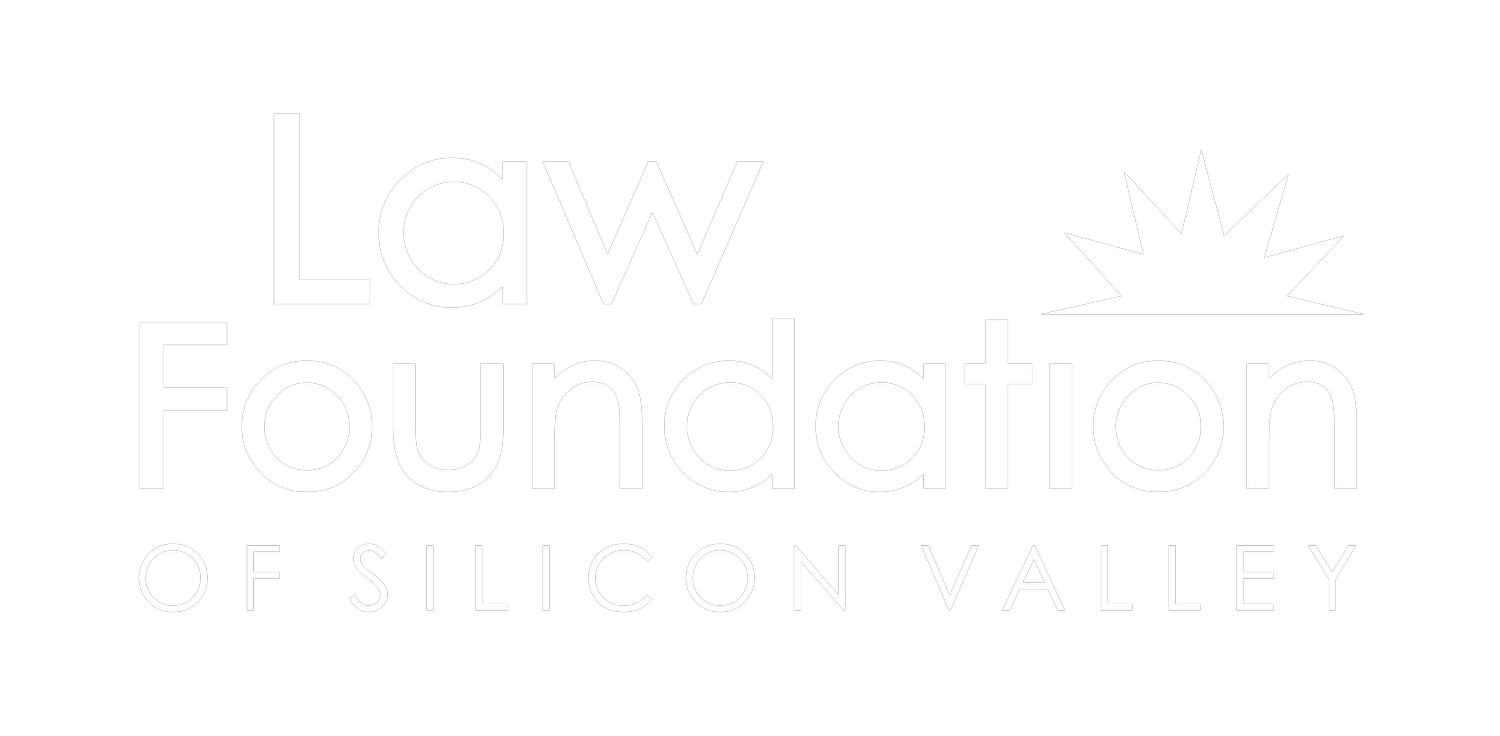View letter as PDF.
December 5, 2022
City Council Committee Members
Community and Economic Development Committee
City of San José
200 East Santa Clara St.
San José, CA 95113
RE: San Jose’s Affordable Housing Siting Policy
Dear Mayor Sam Liccardo and Members of the San Jose City Council,
The Law Foundation of Silicon Valley advances the rights of under-represented individuals and families in our diverse community through legal services, strategic advocacy, and educational outreach; we use the law to address issues like poverty, discrimination, and child abuse and neglect through our free legal services. We write to express support for the Housing Department’s latest draft of the affordable housing siting policy. The Law Foundation and the housing advocate community had several concerns about the previous draft of the affordable housing siting policy, particularly the use of violence as a factor in determining the placement of affordable housing developments. We are happy to see that the Housing Department has removed this factor and instead created a more inclusive siting policy. We urge you to pass the current version of the affordable housing siting policy that will be presented at the December 6, 2022 city council meeting.
The affordable housing siting policy is a means of fulfilling state law requirements under Assembly Bill 686 to affirmatively further fair housing. AB 686 defines affirmatively furthering fair housing as, “…taking meaningful actions that, taken together, address significant disparities in housing needs and in access to opportunity, replacing segregated living patterns with truly integrated and balanced living patterns, transforming racially and ethnically concentrated areas of poverty into areas of opportunity, and fostering and maintaining compliance with civil rights and fair housing laws.” We believe the current iteration of the siting policy meets this goal by removing poverty and crime statistics to determine the location of affordable housing. The policy also ensures affordable housing is built throughout the city, giving San Jose residents a choice of where they can live. While the City needs to expand affordable housing into neighborhoods with more resources and wealth, it cannot neglect historically redlined neighborhoods and perpetuate practices that disinvest from these communities. Housing should also be built in these areas and the City must consider ways to increase access to resources in these neighborhoods.
We further urge you to no longer consider violence as a factor in any proposed changes to the policy or in future affordable housing policies. AB 686 does not provide any directives to assess the crime rates or rates of violence of a neighborhood in a manner that prevents the development of housing in those areas. Further, California’s Department of Housing and Urban Development published guidance on how to affirmatively further fair housing.(1) Notably, the guide cites policing and criminalization as contributing factors that cause segregation, racial concentration, disparities in opportunity, as well as disparities in opportunity for people with disabilities.(2)
Using crime statistics and violence is inherently problematic, as neighborhoods of color are often overly policed and people of color, particularly black and brown people are often criminalized based on racist assumptions. Police engage in more aggressive policing tactics in neighborhoods with black and brown people, particularly disadvantaged neighborhoods.(3) Black individuals are more likely to be arrested, convicted, and have longer sentences as compared to white individuals who have committed the same crimes.(4) Daanika Gordon, an assistant professor of sociology in the School of Arts and Sciences at Tufts University states, “predominantly Black neighborhoods are simultaneously over-policed when it comes to surveillance and social control, and under-policed when it comes to emergency services… Policing responds to segregated landscapes.”(5) San Jose must not repeat the mistakes of the past by using racist stereotypes to determine the housing landscape.
Therefore, we urge you to approve the affordable housing siting policy without further amendments. Thank you for your time and consideration. You may contact me at 408-293-4796 or at erin.neff@lawfoundation.org if you have questions or would like to discuss these issues further.
Sincerely,
Erin Neff
Lead Policy Attorney
Housing Program
Law Foundation of Silicon Valley
California Dep’t Hous. and Comm. Dev., Affirmatively Furthering Fair Housing (2021) https://www.hcd.ca.gov/community-development/affh/docs/affh_document_final_4-27-2021.pdf
California Dep’t Hous. and Comm. Dev., Affirmatively Furthering Fair Housing (2021), https://www.hcd.ca.gov/community-development/affh/docs/affh_document_final_4-27-2021.pdf
Ronald Weitzer & Rod K. Brunson, Policing Different Racial Groups In the United States (2015) https://sociology.columbian.gwu.edu/sites/g/files/zaxdzs1986/f/downloads/Weitzer%20%26%20Brunson%202015 %20.pdf
The Sentencing Project, Report to the United Nations on Racial Disparities in the U.S. Criminal Justice System (2018) https://www.sentencingproject.org/publications/un-report-on-racial-disparities/
Robin Smyton, How Racial Segregation and Policing Intersect in America, (2020) https://now.tufts.edu/2020/06/17/how-racial-segregation-and-policing-intersectamerica#:~:text=Gordon%20is%20finding%20that%2C%20due,emergency%20services%2C%E2%80%9D%20she%2 0said.

